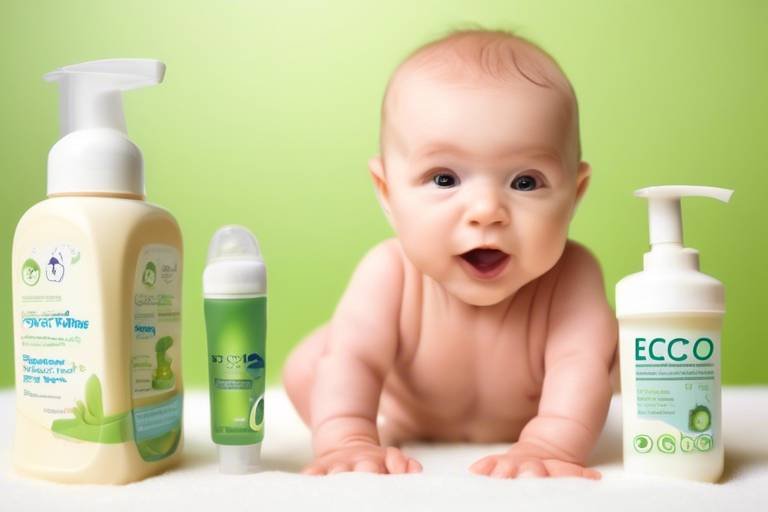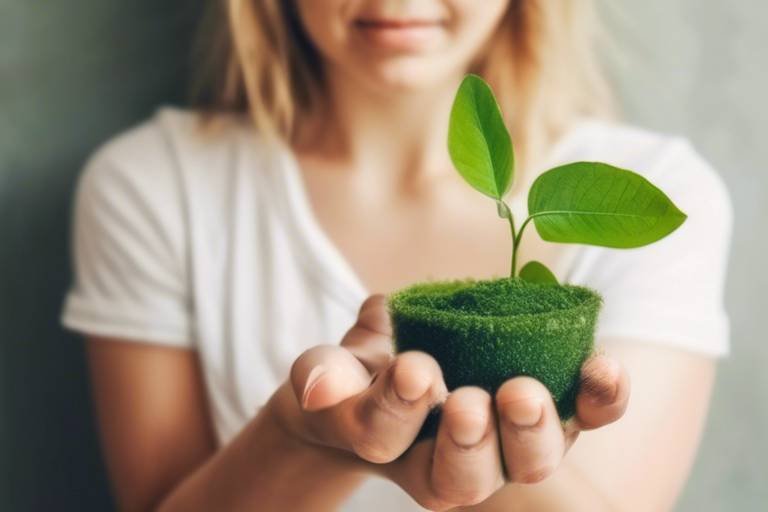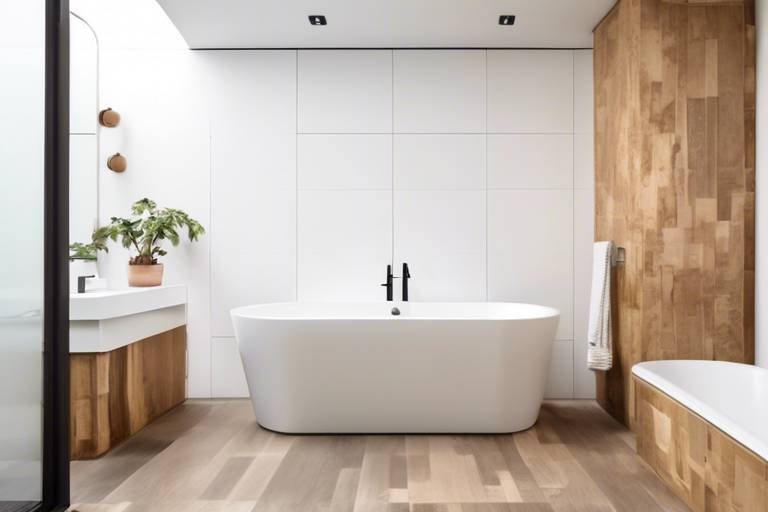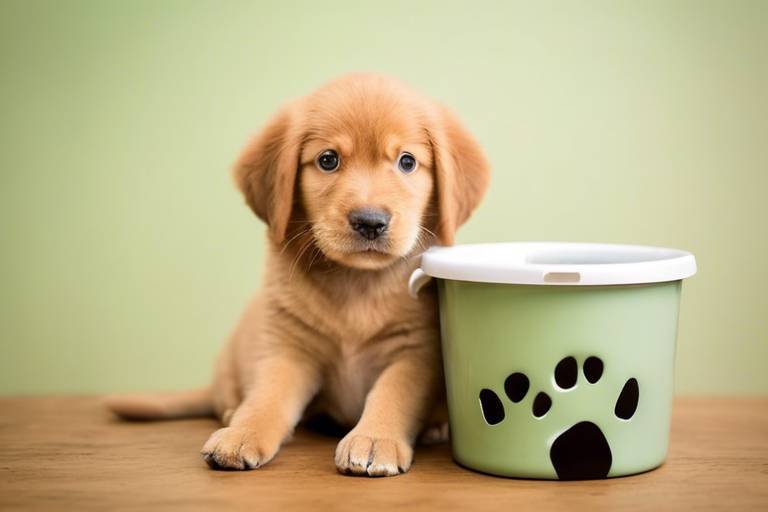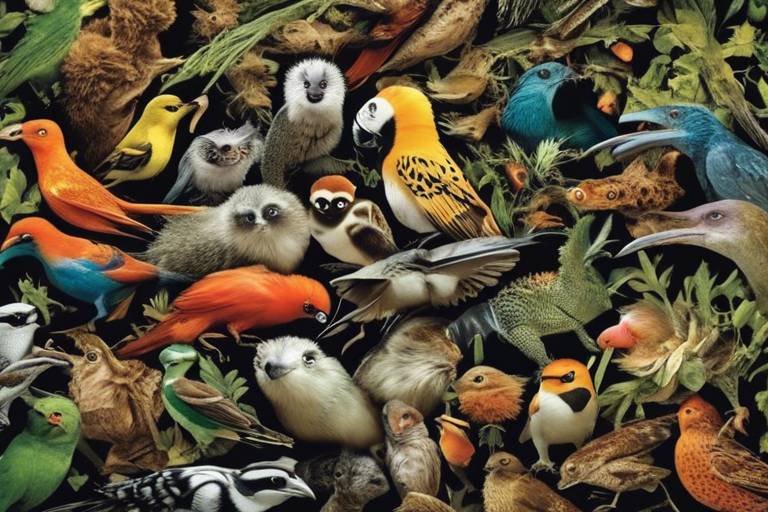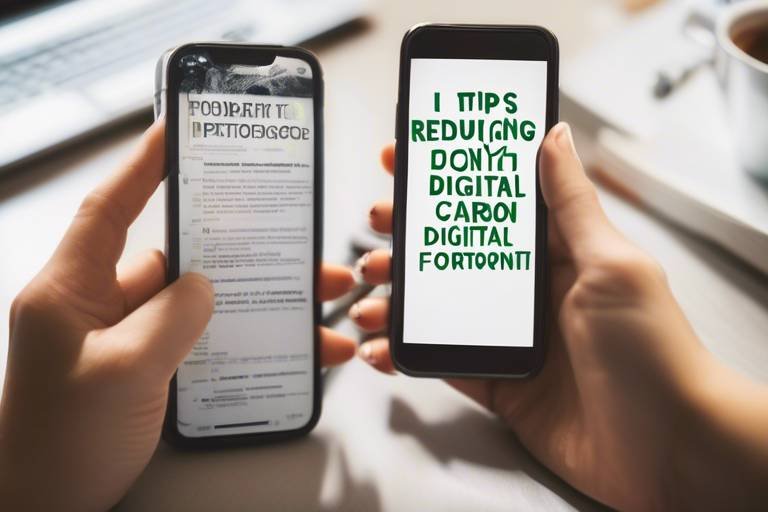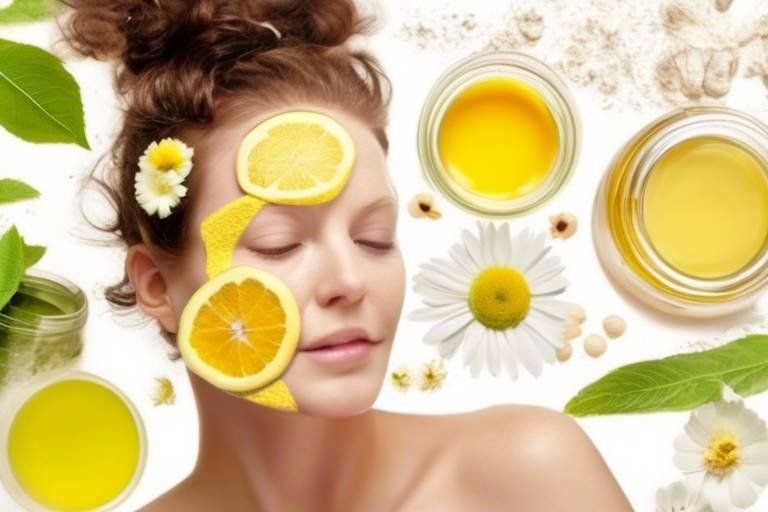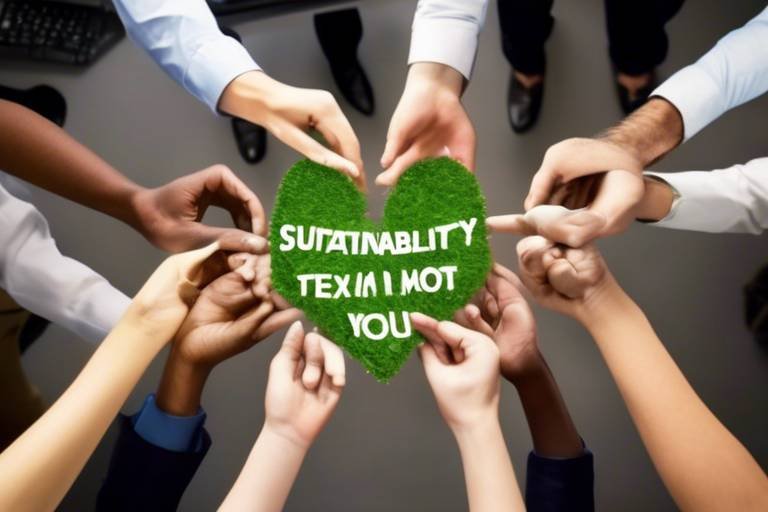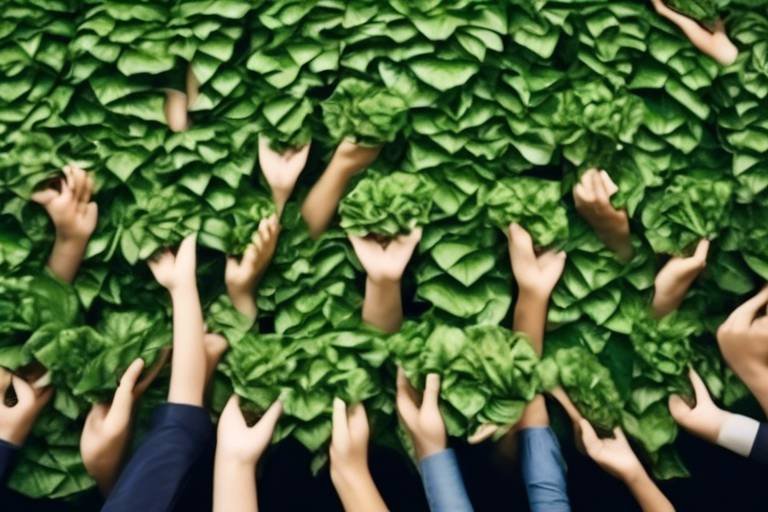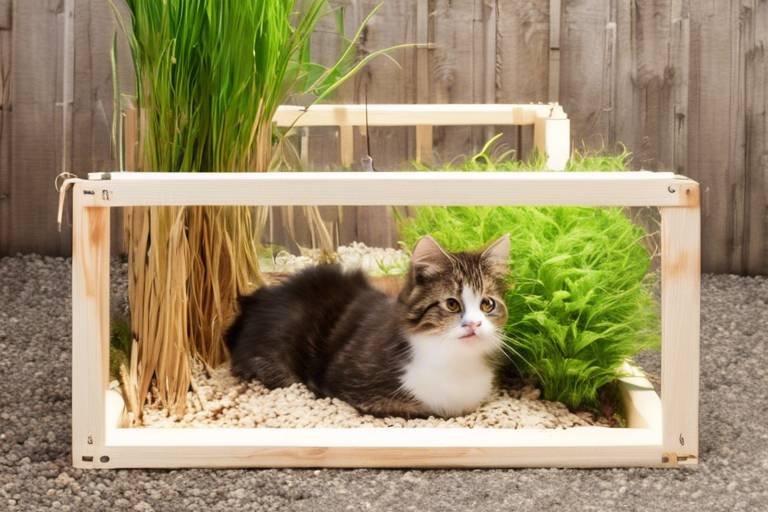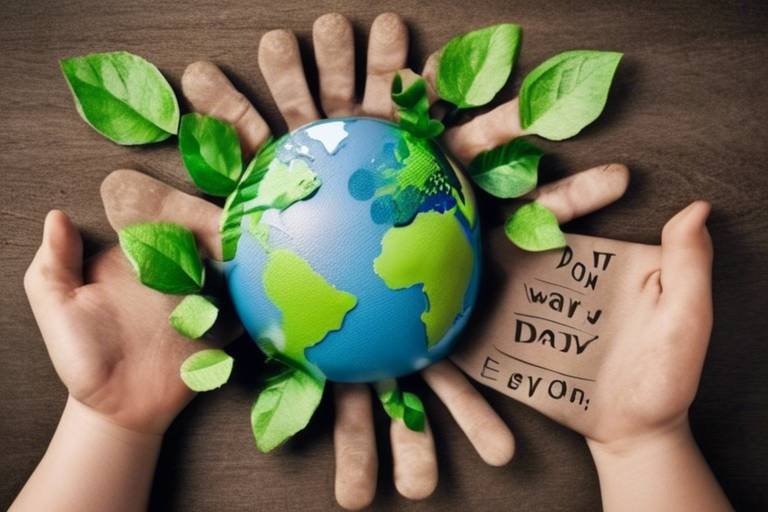How to Choose Eco-Friendly Baby Products
Choosing eco-friendly baby products is a crucial step towards ensuring the well-being of your little one and the planet. By opting for sustainable and safe options, you can make a positive impact on the environment while providing the best care for your baby. When navigating the world of eco-conscious parenting, it's essential to be well-informed and selective in your choices.
One of the key aspects to consider when choosing eco-friendly baby products is the materials and ingredients used. Avoiding harmful substances such as phthalates, BPA, and synthetic fragrances is paramount. Instead, look for products made from organic, non-toxic, and biodegradable materials. These materials are not only safer for your baby but also better for the environment.
When shopping for eco-friendly baby products, keep an eye out for certifications and labels that indicate sustainability and safety. Trusted eco-labels like USDA Organic, Global Organic Textile Standard (GOTS), and Forest Stewardship Council (FSC) can help you make informed decisions. These certifications ensure that the products meet stringent environmental and ethical standards.
Another important factor to consider is the packaging of baby products. Opt for items with minimal or recyclable packaging to reduce waste. Supporting brands that prioritize sustainable packaging practices can significantly contribute to minimizing plastic pollution and environmental harm.
Choosing energy-efficient baby gear is also essential in promoting sustainability. Look for cribs, strollers, and toys that are durable, repairable, and have low energy consumption. By opting for energy-efficient appliances, you not only save on energy costs but also reduce your carbon footprint.
Exploring cloth diapering and reusable options is another way to make eco-friendly choices for your baby. Cloth diapers are not only better for the environment but also cost-effective in the long run. Embracing reusable baby products can help reduce waste and promote a more sustainable lifestyle.
Supporting ethical and fair trade brands is crucial in ensuring that the production of baby products aligns with social responsibility and environmental stewardship. Prioritize brands that uphold ethical labor practices and support fair trade initiatives. By choosing ethically produced items, you contribute to a more equitable and sustainable supply chain.
For those who enjoy DIY projects, creating homemade eco-friendly baby products can be a rewarding experience. Using natural and eco-friendly ingredients, you can personalize baby care items while reducing environmental impact. DIY projects not only allow for customization but also promote creativity and sustainability.
Connecting with like-minded parents and eco-conscious communities can provide valuable resources and support for choosing and using eco-friendly baby products. Joining online forums, attending eco-friendly parenting events, and accessing relevant resources can help you stay informed and inspired on your eco-conscious parenting journey.

Materials and Ingredients to Avoid
When it comes to choosing eco-friendly baby products, it's crucial to be aware of the materials and ingredients to avoid. Understanding the harmful substances commonly found in conventional baby items can help you make informed decisions for your little one's well-being and the environment.
One of the key ingredients to steer clear of is phthalates, which are chemicals often used to soften plastics. These compounds have been linked to various health concerns, including hormone disruption and developmental issues. Similarly, BPA, commonly found in plastic containers and bottles, is another substance to avoid due to its potential negative effects on health.
Another culprit to watch out for is synthetic fragrances. While they may make products smell nice, these artificial scents can contain a cocktail of harmful chemicals that can be harmful to both your baby's health and the environment.
When selecting baby products, opt for those made from organic, non-toxic, and biodegradable materials. Look for items that are free from harmful chemicals and are gentle on your baby's delicate skin. Choosing natural fibers like organic cotton and bamboo can help reduce exposure to toxins and promote sustainability.

Certifications and Labels to Look For
When choosing eco-friendly baby products, it is crucial to look for certifications and labels that signify the product's sustainability and safety. These certifications provide assurance that the items meet specific environmental and ethical standards, ensuring a positive impact on both your baby's well-being and the planet. By understanding and recognizing these certifications, you can make informed decisions that align with your eco-conscious parenting values.
One of the most trusted eco-labels to look for when selecting baby products is the USDA Organic certification. This label ensures that the product has been produced using organic ingredients, free from harmful pesticides and chemicals. Opting for USDA Organic-certified baby items guarantees that your little one is not exposed to potentially toxic substances, promoting a healthier environment for your child to thrive in.
Another essential certification to consider is the Global Organic Textile Standard (GOTS). This certification applies to textiles used in baby clothing, bedding, and other fabric-based products. GOTS certification guarantees that the materials are organic, sustainably produced, and free from harmful dyes and finishes. Choosing baby products with the GOTS label not only safeguards your baby's delicate skin but also supports environmentally responsible manufacturing practices.
Additionally, the Forest Stewardship Council (FSC) certification is crucial when selecting wooden baby products such as cribs, toys, and furniture. The FSC label indicates that the wood used in the product comes from responsibly managed forests, promoting conservation and sustainable harvesting practices. By prioritizing FSC-certified items, you contribute to the preservation of forest ecosystems while providing your baby with safe and eco-friendly products.
By paying attention to these certifications and labels, you can confidently choose eco-friendly baby products that prioritize sustainability, safety, and ethical production practices. Incorporating certified items into your baby's daily routine not only benefits your child's health but also contributes to a greener and more sustainable future for generations to come.

Sustainable Packaging Choices
When it comes to choosing eco-friendly baby products, sustainable packaging plays a crucial role in reducing environmental impact. Opting for baby items with minimal or recyclable packaging not only helps in minimizing waste but also supports brands that prioritize sustainability. Imagine a world where every diaper or toy you purchase comes in packaging that doesn't harm the planet, where each box or wrapper is designed with the environment in mind, ready to decompose and return to the earth without leaving a trace. This is the essence of sustainable packaging choices – a small yet significant step towards a greener future for our little ones.

Energy-Efficient Baby Gear
When it comes to choosing baby gear, opting for energy-efficient options not only benefits the environment but also helps in reducing your household's energy consumption. Energy-efficient baby gear encompasses a range of products designed to operate with minimal energy while maintaining functionality and safety. From cribs to strollers and toys, selecting energy-efficient options can make a significant difference in your eco-friendly parenting journey.
Energy-efficient baby appliances are designed to consume less energy without compromising on performance. These products often feature innovative technologies that maximize energy efficiency, such as LED lighting, low-power consumption motors, and smart energy-saving features. By choosing energy-efficient baby gear, you can not only save on electricity costs but also reduce your carbon footprint and contribute to a more sustainable future for your child.
When selecting energy-efficient baby gear, look for products that are built to last. Durable and repairable items not only reduce the need for frequent replacements but also minimize waste generation. Investing in quality baby gear that can withstand the test of time ensures that you are making a sustainable choice for both your child and the environment. Additionally, opting for products with low energy consumption can further enhance the eco-friendliness of your parenting practices.
Consider the lifecycle of the baby gear you choose. Products that are designed with sustainability in mind often have a lower environmental impact throughout their lifecycle, from production to disposal. Look for materials that are recyclable or biodegradable, as well as brands that prioritize eco-friendly manufacturing processes. By selecting energy-efficient baby gear with a focus on sustainability, you can make a positive impact on the environment while providing your child with safe and eco-conscious products.

Cloth Diapering and Reusable Options
When it comes to eco-friendly baby care, cloth diapering and reusable options stand out as sustainable choices that benefit both the environment and your baby's well-being. Cloth diapering has come a long way from the traditional image of safety pins and bulky fabric. Modern cloth diapers are designed for convenience, comfort, and efficiency, making them a popular choice among eco-conscious parents.
One of the key advantages of cloth diapering is its significant reduction in waste compared to disposable diapers. Did you know that disposable diapers can take up to 500 years to decompose in a landfill? In contrast, cloth diapers are reusable and can last through multiple children, significantly minimizing the environmental impact of diapering.
Furthermore, cloth diapers are often made from organic and natural materials, free from harmful chemicals and synthetic fragrances commonly found in disposable diapers. This not only reduces the risk of skin irritations and allergies for your baby but also contributes to a healthier planet by avoiding the use of non-biodegradable materials.
Choosing cloth diapering and reusable options also presents a cost-effective solution in the long run. While the initial investment may seem higher than purchasing disposable diapers, the savings over time are substantial, especially if you plan to reuse the cloth diapers for future children or resell them in the thriving second-hand market.
Additionally, cloth diapering allows for customization and personalization based on your baby's needs. With a variety of styles, materials, and designs available, you can select cloth diapers that suit your baby's size, absorbency requirements, and aesthetic preferences. From pocket diapers to prefolds, modern cloth diapering offers a versatile range of options to meet your family's needs.
Embracing cloth diapering and reusable options is not only a practical choice but also a conscious decision to reduce waste, promote sustainability, and provide your baby with a safe and comfortable diapering experience. By incorporating these eco-friendly practices into your parenting routine, you are taking a proactive step towards a greener future for your child and the planet.

Supporting Ethical and Fair Trade Brands
When it comes to choosing baby products, supporting ethical and fair trade brands is essential for eco-conscious parenting. By prioritizing brands that uphold ethical labor practices and support fair trade, parents can ensure that the production of baby items aligns with social responsibility and environmental stewardship. This not only promotes a more sustainable supply chain but also contributes to the well-being of workers involved in the manufacturing process.
Opting for ethical and fair trade brands means supporting companies that value transparency, fair wages, and safe working conditions. These brands often engage in partnerships with local communities, promote artisan craftsmanship, and prioritize sustainable sourcing practices. By choosing such brands, parents can make a positive impact beyond just the product itself, extending support to communities and workers around the world.
When selecting baby products, look for certifications and labels that indicate a brand's commitment to ethical practices. Certifications such as Fair Trade Certified, Fair Trade Federation, and Ethical Trading Initiative are indicators of a brand's dedication to fair labor practices and ethical standards. By choosing products bearing these certifications, parents can be confident in their purchase decisions and support the values of ethical production.
Furthermore, engaging with ethical and fair trade brands fosters a sense of connection and responsibility towards global communities. It allows parents to be part of a larger movement that advocates for fair wages, human rights, and sustainable practices in the production of consumer goods. By supporting these brands, parents can instill values of social consciousness and ethical consumerism in their children from an early age.

DIY Eco-Friendly Baby Products
When it comes to caring for your baby in an eco-friendly way, creating do-it-yourself (DIY) baby products can be a fun and rewarding experience. By making your own baby items, you have full control over the ingredients and materials used, ensuring that they are safe, natural, and sustainable.
One popular DIY eco-friendly baby product is homemade baby wipes. Instead of using disposable wipes that can contain harmful chemicals and contribute to waste, you can easily make your own using soft cloth wipes and a gentle cleansing solution made from natural ingredients like water, baby soap, and coconut oil.
Another eco-friendly DIY option is crafting your own baby toys. By repurposing materials like wooden blocks, fabric scraps, and non-toxic paints, you can create unique and safe toys for your little one. Not only does this promote sustainability by reducing waste, but it also allows you to personalize toys to suit your baby's preferences.
For eco-conscious parents looking to reduce plastic use, making homemade baby food is a great alternative to store-bought options. By pureeing organic fruits and vegetables at home, you can avoid single-use packaging and ensure that your baby's meals are free from preservatives and additives.
Additionally, DIY diaper rash creams and balms are popular among parents seeking natural remedies for their baby's skin. Simple recipes using ingredients like coconut oil, shea butter, and essential oils can soothe and protect your baby's delicate skin without the use of harsh chemicals or synthetic fragrances.
Embracing the DIY approach to eco-friendly baby products not only allows you to minimize your environmental footprint but also fosters a deeper connection to the items you use for your baby. Get creative, experiment with different recipes and materials, and enjoy the process of making sustainable choices for your little one.

Community and Resources for Eco-Friendly Parenting
When it comes to eco-friendly parenting, connecting with a community that shares your values can be incredibly beneficial. Surrounding yourself with like-minded parents who prioritize sustainability can provide support, encouragement, and a wealth of resources to help you on your journey towards a more eco-conscious lifestyle.
Online forums, social media groups, and local meetups are great places to connect with other eco-friendly parents. These platforms offer opportunities to share experiences, exchange tips, and seek advice on choosing the best eco-friendly baby products for your family.
Additionally, many eco-conscious communities organize events, workshops, and seminars focused on sustainable parenting practices. These gatherings can be invaluable for learning about the latest eco-friendly products, discussing environmental issues, and building a network of support with fellow eco-minded individuals.
Resources dedicated to eco-friendly parenting, such as blogs, websites, and podcasts, can also be valuable sources of information and inspiration. These platforms often feature product reviews, eco-friendly parenting tips, DIY tutorials, and interviews with experts in sustainable living.
Furthermore, partnering with local environmental organizations or non-profits can provide opportunities to engage in community initiatives, volunteer work, and advocacy efforts that promote eco-friendly practices and raise awareness about environmental issues affecting families and children.
By actively participating in eco-friendly parenting communities and utilizing available resources, you can enhance your knowledge, expand your support network, and make informed choices that benefit your baby, the environment, and future generations.
Frequently Asked Questions
- What are the benefits of choosing eco-friendly baby products?
Choosing eco-friendly baby products has numerous benefits, including reducing your baby's exposure to harmful chemicals, supporting sustainable practices that protect the environment for future generations, and promoting ethical production methods that prioritize fair labor practices.
- How can I identify eco-friendly baby products?
You can identify eco-friendly baby products by looking for certifications and labels such as USDA Organic, GOTS, and FSC, avoiding harmful substances like phthalates and BPA, opting for materials like organic cotton and bamboo, and choosing products with minimal or recyclable packaging.
- Is cloth diapering a sustainable choice for eco-conscious parents?
Yes, cloth diapering is a sustainable choice that can significantly reduce waste and environmental impact. By using cloth diapers and reusable baby products, parents can minimize their carbon footprint, save money in the long run, and contribute to a more eco-friendly lifestyle.
- How can I support ethical and fair trade brands in the baby product industry?
You can support ethical and fair trade brands in the baby product industry by researching companies' values and production practices, choosing products that are certified fair trade or ethically sourced, and advocating for transparency and accountability in the supply chain.
- Are DIY eco-friendly baby products a practical and safe option?
DIY eco-friendly baby products can be a practical and safe option for parents who want to customize their baby care items while reducing waste and environmental impact. By using natural ingredients and following reliable recipes, parents can create personalized and eco-conscious products for their little ones.

